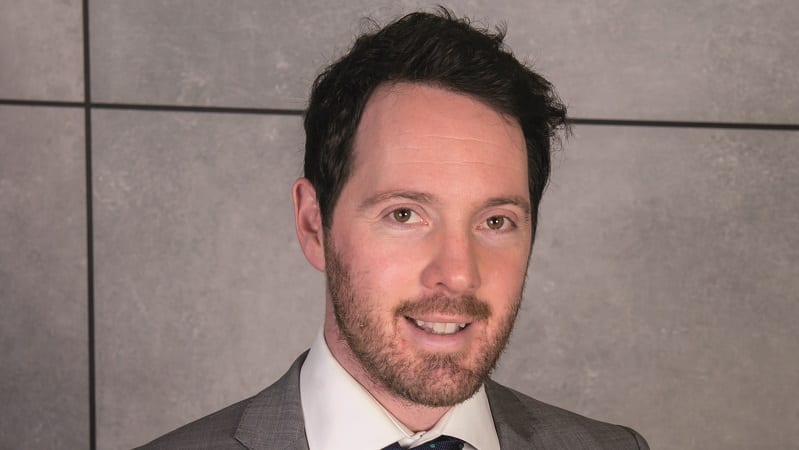Asset managers being forced to unbundle research costs as part of Mifid II has not had a negative effect on the quality of research in the smaller companies space, an academic paper has found, but this conclusion is at odds with certain fund managers and brokers.
The report by Howell Jackson of the Harvard Law School and Jeffery Zhang who sits on the board of governors at the Federal Reserve, concluded that unbundling has reduced the cost and volume of research, reduced the number of ‘redundant’ analysts, but increased the quality of research and not had a material negative impact on the quality of smaller company capital markets.
It assesses how the roll out of Mifid II in the UK and Europe in January 2018 could be used as a case study ahead of a potential implementation in the US where ‘soft dollar’ payments exist whereby asset management firms make use of investor funds to cover research costs.
Under Mifid II in Europe, asset managers are required to explicitly pay for third-party research, and brokers to price and provide research separately, because essentially the regulator feels client money shouldn’t be used to pay for research.
The move was met with scepticism from parts of the buy-side community. Last year, a Peel Hunt report found a majority of fund managers believed the regulation had a “detrimental” effect on research quality and demand and liquidity for small and mid-cap stocks. Two thirds of the 102 fund groups surveyed said less research is being produced in the small and mid-cap space as a result.
Yet in the paper, the authors write: “Unlike industry surveys, which paint a gloomy picture, these academic studies demonstrate that Mifid II has lowered the aggregate level of analyst coverage with respect to large companies – through reduced redundancy – but not with respect to SMEs.
“Moreover, the studies suggest that Mifid II has increased the quality and impact of analyst coverage. Our own empirical analysis on the evolution of bid-ask spreads strongly supports these findings.”
Peel Hunt CEO thinks research quality has suffered
Peel Hunt chief executive Steven Fine told Portfolio Adviser he completely disagrees with the conclusion of the paper, saying he thinks the quality of research has suffered since Mifid II came into force.
Fine thinks two major consequences of Mifid have been the juniorisation of analysts – employing a younger, cheaper workforce – and the generalisation of research teams – turning specialist brokers into generalists with a much wider remit.
“I think that has led to the illusion of a maintenance of coverage of companies to the outside world,” he says. “So, when the FCA says, ‘We see no change in the number of companies covered or the amount of research produced’, they’re absolutely right. But what has changed, without question, is the quality.”
Fine observes a similar number of brokers in the industry as before Mifid, but says there is an enormous polarisation between those at the top and those at the bottom of industry rankings lists – a gap that has widened exponentially over the past three or four years, particularly in the mid and small cap space.
As a consequence of the Mifid II price war and in order to remain relevant in the eyes of asset managers, the only lever brokers have at their disposal is to cut costs, either by sacking analysts or by juniorising and/or generalising them.
“Once you become a generalist, you lose the specialist nature of what you do and can’t write credibly on that number of companies, you just can’t,” he says. “And the clients can see through that immediately and they say, ‘However cheap your research is, I just don’t want it anymore’.
An increase in paid-for research
RC Brown investment director Oliver Brown (pictured), who co-manages the MFM UK Primary Opportunities fund, tells Portfolio Adviser he doesn’t think Mifid regulations have made a huge impact in terms of the number of brokers covering small cap stocks.
“Even pre Mifid II, there were quite a lot of companies that really were only covered by one, maybe two, houses, so you actually had to do quite a lot of research yourself and that hasn’t changed.”
Brown says the perception that the unbundling of research costs would result in less money to go around and therefore investment banks cutting research departments has not been his experience.
“I actually don’t think you’ve really seen that,” he says. “I would say there are some that have beefed up their research.”
He has noticed an increase in sponsored research, however, as firms have tried to fill the gap created by Mifid.
“If you’re a small company, and the only people you follow you are your house broker, then you might pay an independent broker to produce two or three research notes a year,” he says. “Now clearly that is not going to come out with a very bearish take on the company because they’re paying for it.
“So independent brokers have to only take on companies they think they can write good research notes about. I would say that that has helped fill a bit of a gap, if there was a gap there.”
More conflicted research
SVM Asset Management co-founder Colin McLean reckons a lot more research appears to be conflicted since Mifid because the sell-side business model has had to adapt to fund the level of research it delivered before.
Like Brown, McLean tells Portfolio Adviser an increase in paid-for research has filled this gap, as well as IPO and new issuance fees. “So I think we were getting early research from brokers who are really looking towards the next equity issuance from a company – and I would say it’s fairly uncritical.”
He also questions the idea that price formation is better now given the big gaps in price and the vast fluctuations in stock prices in the mid and small cap space.
“Lots of stocks that are performing well are suddenly dropping 7-10% or going up,” he says. “Even big ones like Games Workshop in mid cap moving 15% in a day, and that doesn’t suggest good consistent price formation.”
McLean adds that this extra stock price volatility, along with increased funding that brokers are getting from IPOs and new issuance, doesn’t support what the paper is saying about a reduction in the volume but an increase in quality of research and smaller company markets.
How Peel Hunt has adapted to Mifid II
Fine says Peel Hunt has taken the strategic approach in the post-Mifid environment to prioritise the shareholder (fund manager) clients.
“If you are advising public companies and don’t know what shareholders think, you can’t advise them properly,” he says. “So, my links to shareholders have to be absolutely as strong as they possibly can be – and the links to those shareholders are overwhelmingly through research and sales. So, I must keep investing in and growing my headcount in research and sales to ensure that my connectivity to shareholders is rock solid.
“If I’ve got shareholders on side then I’ve got a better chance of winning high quality corporate clients as a retained adviser.”
Like Fine, Brown alludes to the fact that holding on to sector specialists within brokers is paramount.
“One of the ways to attract companies is to have good analysts who understand the sector, understand the company and make a good impression with management,” he says. “Obviously management want want help in navigating financial markets, but they want analysts who understand their business and even warm to their business and will write, yes, favourably, but independently, and may challenge them as well.
“It is healthy to have a two-way process and research is still very important.”










